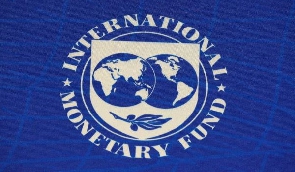Opinions of Friday, 17 October 2003
Columnist: GNA
World Food Day: An International Alliance Against Hunger
A GNA Feature by Philip J. Forson
Accra, Oct. 16 GNA - Once again the celebration of World Food Day (WFD) is here with us and regrettably more than 840 million people remain hungry.
The International Covenant on Economic, Social and Cultural Rights recognizes that everyone must have the fundamental right to be free from hunger.
It is then worthy to emphasize on the theme for this years World Food Day celebration: Working Together for an International Alliance Against Hunger.
The goal of reducing by half the number of hungry people by the year 2015 was adopted at the WFD summit in 1996 and reflected in the Millennium Development Goals of the United Nations, yet progress is painfully slow.
Governments have made verbal commitments to fight hunger, but few have done enough on the scale required. Nations would need to create the policy environment, provide the funding and implement the programmes to allow people to overcome hunger and poverty.
Johannes Rau, President of the Federal Republic of Germany, proposed the idea of an International Alliance on World Food Day in 2001. He urged the formation of an alliance to counter the faltering political will that prevented Nations from allocating adequate resources to fight hunger and poverty.
The Alliance would bring together the abilities of different groups into a single effort. It would include: Food producers and consumers with knowledge of the problems they face; international organizations giving technical support and advice; agribusiness firms; scientists and academic innovations; donor funding development programmes and projects; policy makers; private individuals; religious groups and NGOs raising awareness about the issues of hunger.
The World Food Day is celebrated on October 16 every year with the goal that "Food for All" should become a human right for the present and future generations.
With this new commitment by the International Community to fight hunger, nations must put food security in the forefront of national priorities because it is only when people were well fed that they could take part in economic and social advancement.
Ironically, it is often ridiculously said that severe hunger hits most developing countries on each occasion of World Food Day, which has to be a day of abundance.
An International Alliance against hunger is a call to action, with a view to working together to reduce poverty and to guarantee to the people the basic human right of freedom from hunger.
A call for a national alliance against hunger should be focused on setting targets through the legislature and laying out steps to move forward, including implementing a programme that targets the hungry. Clearly, no new mechanisms are needed to fight hunger. Instead, political commitment to existing initiatives needs to be strengthened to translate the concept of the right to food into reality.
In the vision of Alliance Against Hunger, Governments, NGOs and Civil Society Groups should set guidelines on the progressive realization of the right to food in the context of national food security.
These guidelines should serve as basis for framing national policies and assigning responsibilities in key areas such as targeting the poor and the hungry by providing them with entitlement to employment and food assistance.
In Sierra Leone for example, President Tejan Kabbah is guiding his country after a devastating civil war to be self-dependant on traditional food production methods.
This political commitment is what the alliance seeks to embrace. Too many leaders might have falsely assumed that hunger would go away naturally. It would not because of extreme poverty.
When people eat enough nutritious food to lead active, healthy lives they cease being dependant and begin contributing to their nations growth and development.
FAO estimates that reducing by half the number of hungry people in the World would yield economic benefits totalling 120 billion dollars a year as more people would be freed from the chain of hunger and start leading longer, more productive lives.
It would also reduce child mortality, improve maternal health, reduce the risk of infectious diseases and extend the lives of people living with HIV/AIDS.
The Alliance Against Hunger would be a success if policy makers showed commitment to eradicate hunger and poverty. Agriculture exports must be encouraged as well as the sharing of agricultural technology among countries.
Partners in the alliance could also help in building poor nation's capacity to improve the quality and safety of their food products, thus enabling them to compete fully in agricultural trade. The International Alliance Against Hunger is a way to push aside apathy and indifference to usher in a new era of cooperation and action to join forces to move swiftly to decrease and ultimately eliminate the scourge of hunger.












